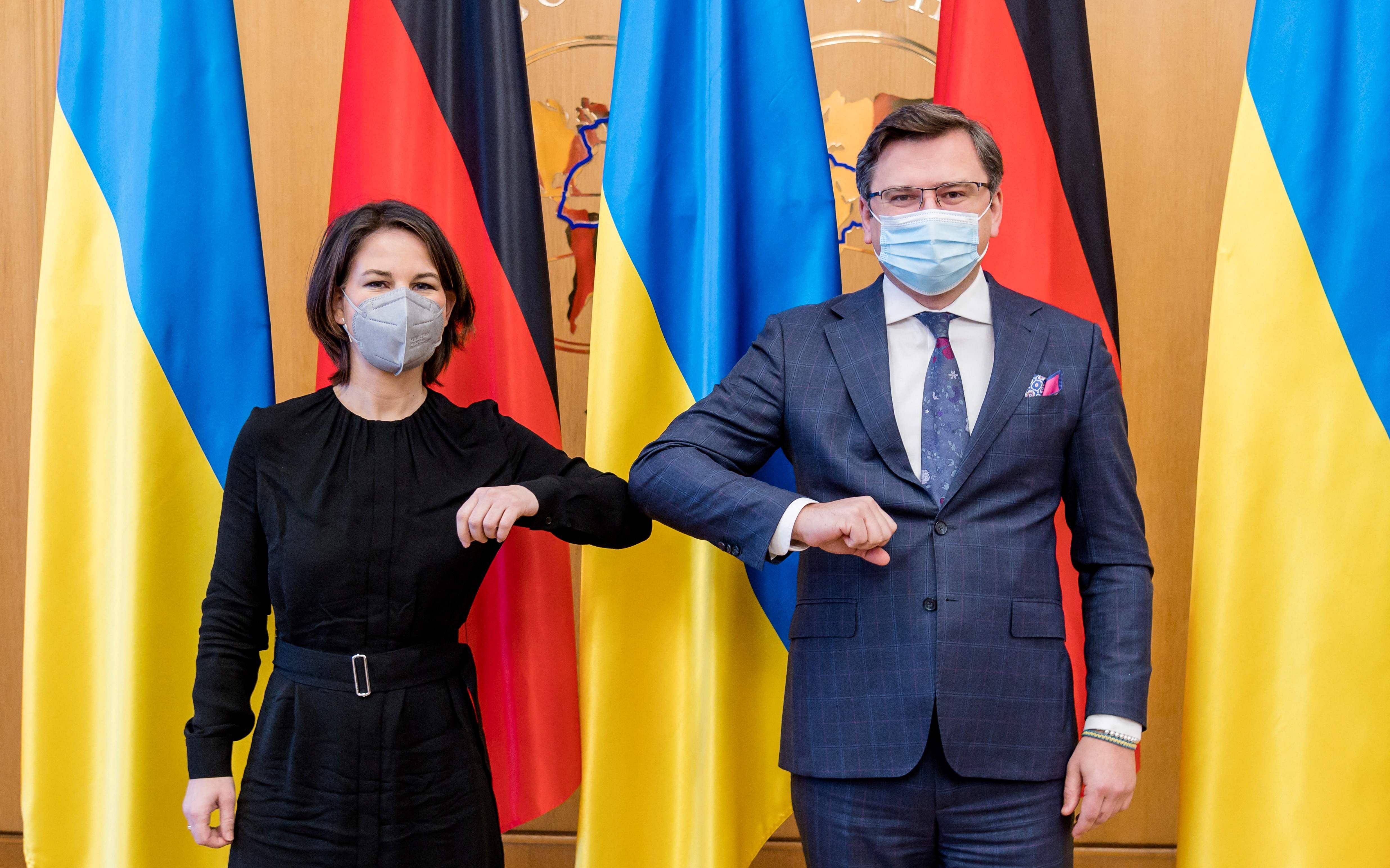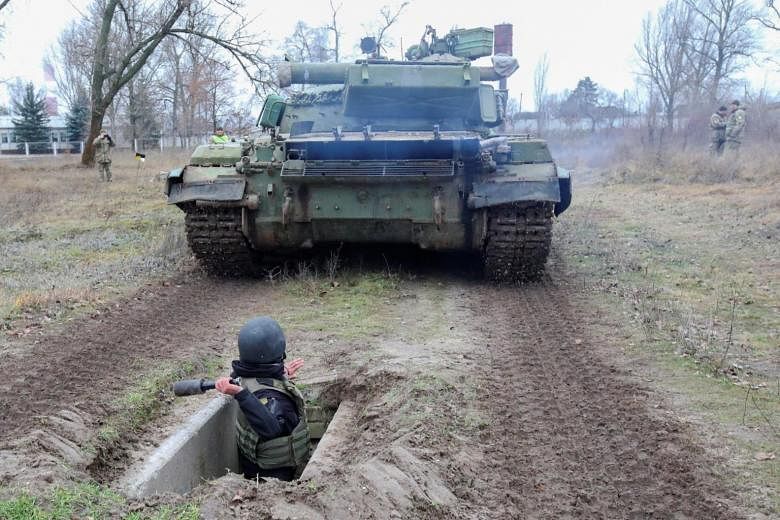LONDON (REUTERS, AFP) - Britain said on Monday (Jan 17) it had begun supplying Ukraine with anti-tank weapons to help it defend itself from a potential invasion, during a stand-off with Russia which has massed troops near the Ukrainian border.
Western countries say they fear Russia is preparing a pretext for a new assault on Ukraine, which it invaded in 2014.
Moscow denies any plans for an attack, but has said it could take unspecified military action unless the West agrees to a list of demands, including banning Ukraine from ever joining Nato. Talks last week ended with no breakthrough. Kiev has asked Western countries for arms to help it protect itself.
"We have taken the decision to supply Ukraine with light anti-armour defensive weapon systems," British Defence Secretary Ben Wallace told Parliament, saying the first systems were already delivered on Monday and a small number of British personnel would provide training for a short period of time.
He did not specify the number or type of weapons that were being sent, but said: "They are not strategic weapons and pose no threat to Russia. They are to use in self-defence."
"These are short-range.... but nevertheless it would make people pause and think what they were doing and if tanks were to roll into Ukraine, invade it, then they would be part of the defence mechanism."
Ukraine's defence minister welcomed Mr Wallace's announcement.
"Ukraine highly appreciates Britain's decision to provide a new security package with light, anti-armour, defensive weapon systems!" Mr Oleksii Reznikov said in a tweet.
Britain has previously warned Russia of severe consequences if it launched a new military assault on Ukraine, while offering financing to enhance Ukraine's naval capabilities.
Mr Wallace said he had invited Russian Defence Minister Sergei Shoigu to visit London in the next few weeks to discuss the crisis, though he did not know if the Russians would accept.
"The current gap is wide but not unbridgeable," Mr Wallace said, voicing the hope that diplomacy would prevail and adding, "It is President (Vladimir) Putin's choice."
Meanwhile, Canada deployed a small contingent of special forces operators to Ukraine.
The Canadian special operations presence is part of an attempt by Nato allies to deter Russian aggression in Ukraine, and to identify ways to assist the Ukrainian government, Canada's Global News reported on Monday, citing unspecified sources.
The unit has also been tasked with helping to develop evacuation plans for Canadian diplomatic personnel in the event of a full-scale invasion, the report said.
A spokesperson for the Canadian Special Operations Forces Command said it could not confirm the report, but that Canada has supported the Ukrainian security forces on a periodic basis since autumn of 2020.
Canadian Foreign Minister Melanie Joly was in Kiev to discuss efforts to deter "aggressive actions" by Russia and met Ukrainian Prime Minister Denys Shmygal on Monday.
Canada, which has the world's third-largest Ukrainian population after Ukraine and Russia, has maintained a 200-strong training mission in western Ukraine since 2015.
On Sunday, it urged Canadians to avoid non-essential travel to Ukraine, in a new advisory citing "Russian aggression".
In Germany, Foreign Minister Annalena Baerbock said the country would do everything in its power to guarantee Ukraine's security.
"We will do our all to guarantee Ukraine's security. We will do our all to guarantee Europe's security," she said at a press conference during her first visit to Ukraine, a day before she is due to meet Russian Foreign Minister Sergei Lavrov in Moscow.

Speaking during a visit to Madrid, German Chancellor Olaf Scholz said "we expect clear steps from Russia to de-escalate the situation".
"Military aggression against Ukraine would have serious political as well as economic consequences" for Russia, he added at a joint news conference with Spanish Prime Minister Pedro Sanchez.
Ms Baerbock's visit to Kiev comes amid attempts to revive the so-called Normandy Format grouping of Germany, France, Russia and Ukraine whose aim is to de-escalate the conflict.
Her Ukrainian counterpart, Dmytro Kuleba, told reporters following discussions that Ukraine and Germany were "committed to a diplomatic settlement of this conflict".
"Our joint goal is the effective work of the Normandy Format and the holding of a summit of leaders of the Normandy Format," Mr Kuleba said.
Russian Foreign Minister Sergei Lavrov is due to hold his first meeting with Ms Baerbock on Tuesday.
Mr Lavrov said during a press conference on Monday that Russia was awaiting "concrete answers" to a series of sweeping security demands in Europe.
He added that "Russia's leadership is capable of protecting its interests both in terms of security and in terms of ensuring the rights of Russian citizens".

